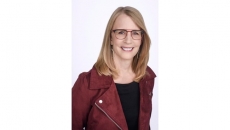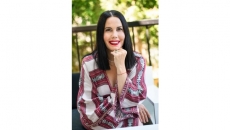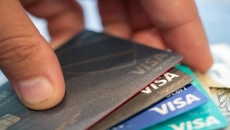In a year that has thrown a pandemic, natural disasters and economic calamity at us while we lurch closer to a presidential election, stability can feel elusive. No matter how well laid your plans, some new crisis might be lurking around the corner, waiting to upend your life.
While it’s never been more clear how much is out of our control, you can still take steps to improve your financial stability. And it’s not just about cash flow.
FIND YOUR IDEA OF STABILITY
Financial stability is both a state of money and a state of mind, says Ed Coambs, a certified financial planner and certified financial therapist near Charlotte, North Carolina.
On the money side, stability is straightforward. “You have a budget, you know where your money is going, and you know how much you should be saving to meet your bigger goals,” Coambs says.
“What’s a little harder is more the state of mind,” Coambs says. This financial peace of mind is subjective and looks different from one person to the next.
Do some self-reflection to pin down what stability means for you. Maybe you don’t want to feel anxious when you check your bank balance, or you hope to save enough for retirement so you won’t have to worry about the future. Whatever your focus, feeling stable means you won’t have to constantly worry about money.
If you find yourself overwhelmed because the pandemic has destabilized your finances, follow the advice of Tara Tussing Unverzagt, a Torrance, California, certified financial planner and financial therapist. She advises people to think through the worst that could happen rather than avoiding the topic out of fear.
“This often helps people open up a way to reframe the situation from, ‘There’s no way out of this,’ to ‘I have some choices — this isn’t my preferred path, but I can move forward with this,’ ” Tussing Unverzagt says.
Once you’ve defined what personal financial stability means to you, you can build a sense of control through proactive money management.
KNOCK OFF MONEY TASKS ONE AT A TIME
You can probably rattle off half a dozen serious issues to worry about right now. But how many of them can you do anything about?
Rather than hand-wringing and doom-scrolling through social media when you feel anxious, focus on actions you can take. Namely, work to improve your financial basics.
— GET A GRASP ON SPENDING: Pin down a budget, if you haven’t already. The 50/30/20 budget is an easy tool for this. Half of your take-home pay goes to necessities, like housing, groceries and utilities. Then, 30% of your budget takes care of wants, like takeout from your favourite restaurant or home decor to spice up your pandemic shelter. Lastly, 20% of your income goes to debt payments and savings.
If you find that your debt payments or housing costs eat up more than the allotted percentage, you could increase financial peace of mind by getting them back in line. That might mean concentrating on paying down debt or looking for less expensive housing. Tackling one or two big expenses does more for your budget than cancelling a handful of streaming services.
— LOOK INTO REFINANCING DEBT: With interest rates at record lows, see if you can refinance your debt, like your student loans or mortgage, to get a lower interest rate. Note that you should generally only refinance private student loans, because if you refinance federal loans you will give up important options such as access to income-driven repayment plans.
But in general, paying less in interest will make your debt more affordable and free up cash in your budget. Note that you’ll generally need a steady income and a healthy credit score to qualify for the best rates.
— BUILD YOUR EMERGENCY FUND: Increasing your savings helps you cover an unexpected expense, like your car breaking down.
“People should focus on creating a safety net, which is the emergency fund,” says Jovan Johnson, a certified financial planner in Decatur, Georgia. Start with a goal of $500 to $1,000, which is enough to insulate you from common emergencies, then keep building over the long haul.
“A rule of thumb is three to six months of nondiscretionary expenses, and I like to include maximum out-of-pocket health care expenses in that,” Johnson says.
— STICK WITH STEADY RETIREMENT SAVINGS: The stock market will go up, and down, then back up again. It’s best to be a steady investor. Make regular contributions to your 401(k) or IRA every month or every pay period to smooth out fluctuations in the cost of investments.
You can take further steps to ride out market volatility by rebalancing your 401(k) or other retirement and investment accounts, says Daniel Granucci, a certified financial planner in Sandy Hook, Connecticut.
“By doing systematic rebalancing, historically that’s been proven to minimize risk in times of distress and can add to your long-term returns,” Granucci says.





